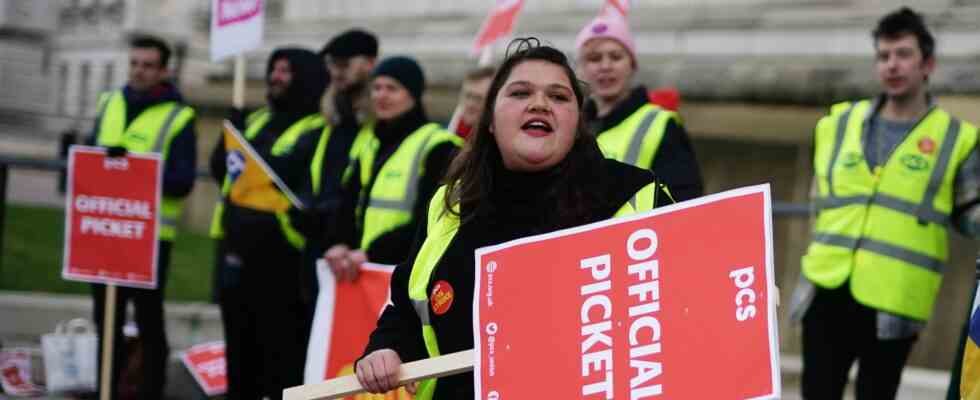Status: 02/01/2023 11:52 a.m
Up to half a million people could walk out of work in the UK today. Teachers, train drivers and public sector employees take part in the fight for better wages. The last time there was a strike of this magnitude was in 2011.
The biggest strike in more than a decade has begun in the UK. At the same time, teachers, but also a number of train drivers and employees in the public sector, went down in the fight for higher wages. The National Education Union estimated that 85 percent of schools in England and Wales would be affected. According to this, more than 100,000 teachers could go on strike. In addition to the teachers’ union, the PCS union in the public sector has called on about 100,000 members in 124 government agencies to walk out.
The Trades Union Congress estimated that up to half a million workers across the country, including teachers, university staff, civil servants, border officials and train and bus drivers, will be out of work. Further actions, also by nurses, are planned for the coming days and weeks.
The last time the country saw mass strikes of this magnitude was in 2011, when well over a million public sector workers participated in a day-long strike over pensions.
“I’m disappointed it came to this”
Education Secretary Gillian Keegan indicated talks with unions are ongoing. She told Times Radio this morning about the strike: “I’m disappointed that the unions have come to this decision.” It’s not the last resort.
The employees do not want to be satisfied with the previous offers because they are far below the level of the inflation rate of around ten percent recently. The conservative government rejects improvements and points to a “vicious circle” of rising prices.
The collective bargaining dispute has been raging for several months. With a controversial law, the government wants to ensure that basic services are guaranteed, for example for rescue workers and nursing staff as well as firefighters and the railways. The unions reject the plan as undemocratic. Parallel to the strikes, protests against the proposed law were to take place.

